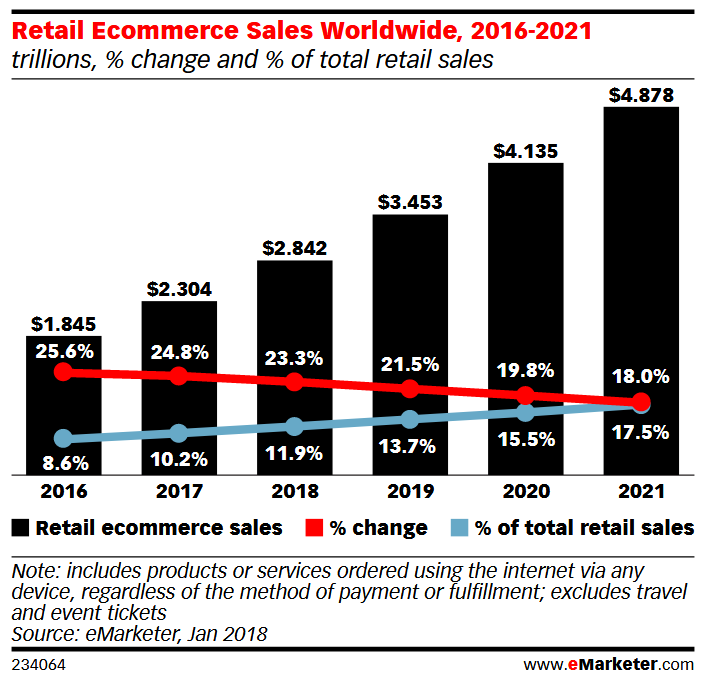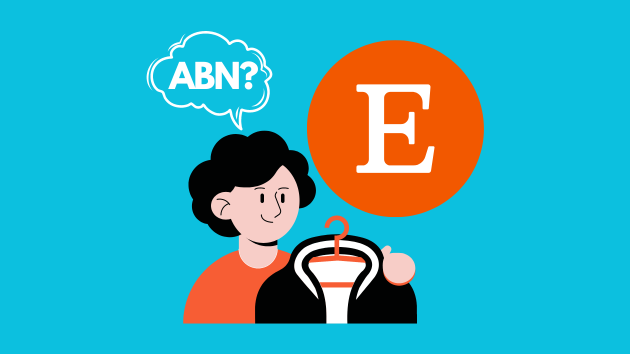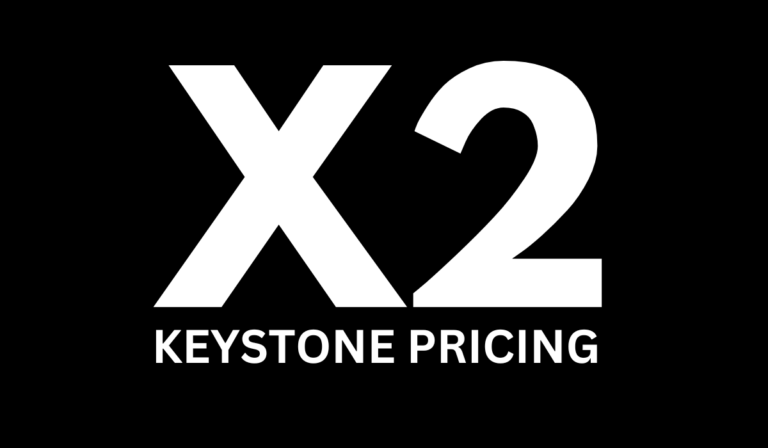Ever thought how life would be without online shopping? We effortlessly enter into the virtual world to fetch for our desirable product or service and enjoy the hassle-free shopping.
Online shopping is actually so contagious that no one can stay immune from it. It is the concept of eCommerce that has given rise to the era of online shopping.
What is eCommerce?
Electronic commerce or internet commerce which is popularly known as eCommerce refers to a business that enables buying and selling goods or services using the internet. The entire transaction process is conducted online. Any device with an internet connection can be used for eCommerce.
The most popular activity of eCommerce is online shopping. Along with it, the electronic commerce commonly comprises of activities like online banking, online auctions, online ticketing and payment gateway.
The first-ever online sale took place back in 1994 when a band sold CD to their friend through a retail platform called NetMarket.
Online retail sales worldwide are expected to reach a whopping $6.51 trillion by 2023. mCommerce another revenue of eCommerce has colossally influenced the retail market. Since most of the people around the globe find mobile phones, convenient, the sales are said to rise by around 40% as compared to last year.
Types of eCommerce Business Models
There are 6 main types of eCommerce models that are used to describe the transaction that takes place between the business and the consumer. The models are categorized as:
- Business to Consumer (B2C)
- Business to Business (B2B)
- Consumer to Consumer (C2C)
- Consumer to Business (C2B)
- Business to Administration (B2A)
- Consumer to Administration (C2A)
Let’s understand them in detail:
Business to Consumer (B2C)
This is the most popular model that defines the transaction that takes place between business and consumer.
Example – Customer buying clothes or shoes from an online retailer.
Business to Business (B2B)
It relates to transactions or sales that take place between two businesses. Usually, the business buys the product in bulk from other businesses due to which it can be benefited from discounts.
Example – Buying any raw materials in bulk or business which sells software as a service to other business.
Consumer to Consumer (C2C)
This business model refers to product sales between consumer to consumer. Generally, it is related to the reselling of products.
Example – a customer selling old furniture or refurbished mobile phone to another customer via any eCommerce platform.
Consumer to Business (C2B)
It is the reversal eCommerce model where the consumer offer services and products to the business.
Example – A photographer selling their photos to any stock image website for a certain amount or any crowdfunding project.
Business to Administration (B2A)
This model refers to an online transaction that takes place between business and administration.
Example – Any legal document or security service.
Consumer to Administration (C2A)
This is a kind of rare eCommerce model that relates to consumers offering products or services to the administration to increase government efficiency with the help of technology.
Example – Online consulting services like education or online tax service.
Examples of eCommerce
eCommerce transactions can take place in a variety of forms like:
- Retail sales where a business sells the product directly to the customers or end-users without any mediator
- Wholesale where the business sells the product in bulk. Usually, it is a transaction that takes place between wholesalers and retailers.
- Dropshipping where the product is manufactured and shipped to the customer via the third party
- Crowdfunding, a technique where the consumer’s fund is collected in advance to buy a product to raise its startup capital
- Subscription means availing any product or service for a certain period which can also be canceled. Example – Netflix subscription
- The download of any digital products like images, themes, plugins or any media for general, commercial or licensed use
- Skills or teaching program purchased by paying the specific fee amount
What are the benefits of eCommerce
Sales 24/7, consumers and businesses both are enjoying the benefits of eCommerce. There are a lot more notable benefits offered by the digital business:
Reach customers worldwide
Unlike the traditional brick and mortar shops which could only sell products in a particular area or location, an eCommerce store can effortlessly sell their products and services worldwide without any geographical constraints. With a website, social media advertising and a bit of promotion, you can reach a wider audience.
Whenever, wherever
Customers can easily shop for products and services whenever they want from wherever they are. Since there is no closing time unlike traditional stores, the business has a great opportunity to amplify their sales. Almost every eCommerce business offer services 24/7 and all 365 days.
Low operational cost
eCommerce is one business with maximum profits at minimum costs. Since you are running your store online, there is no need to hire any workforce or team, you can run your shop single-handedly. And even the cost of putting up a store and opening multiple outlets is eliminated.
You can almost save billions by cutting down the operational costs.
Easy inventory management
The inventory management process is seamlessly automated with the help of digital tools. Ordering, shipping, payment, everything is smooth sailing.
Hassle-free shopping experience
Not just for businesses, eCommerce is a boon to customers all over the world. Apart from round the clock shopping, customers can also make their shopping hassle-free with customized settings. By applying filters and shopping by category features make online shopping more convenient.
The Future of eCommerce
The future of eCommerce is much, much, much brighter than the present. It is not at all a trend that is going to fade. Right from clothes to grocery, electrical products to medicines, everything is available online, hence eCommerce is a must.

eCommerce business can witness more advancement by embracing artificial intelligence technology and digital currencies. Also, customer journeys are expected to become more personalized. There are endless opportunities for growth depending on the technology as well as changing consumer needs.
If you want your business to stay ahead of the curve, steadily follow the trends and join the eCommerce revolution.



